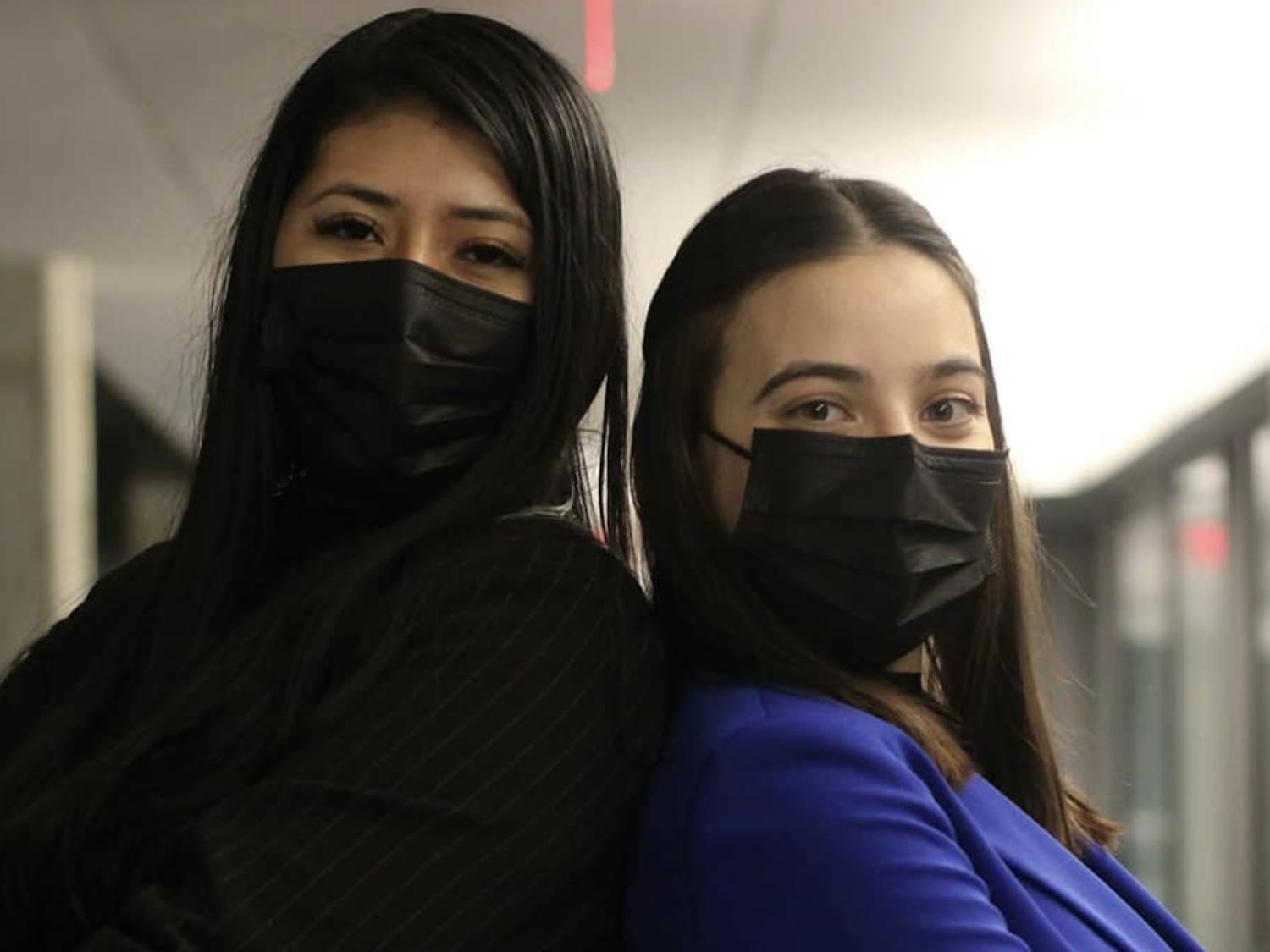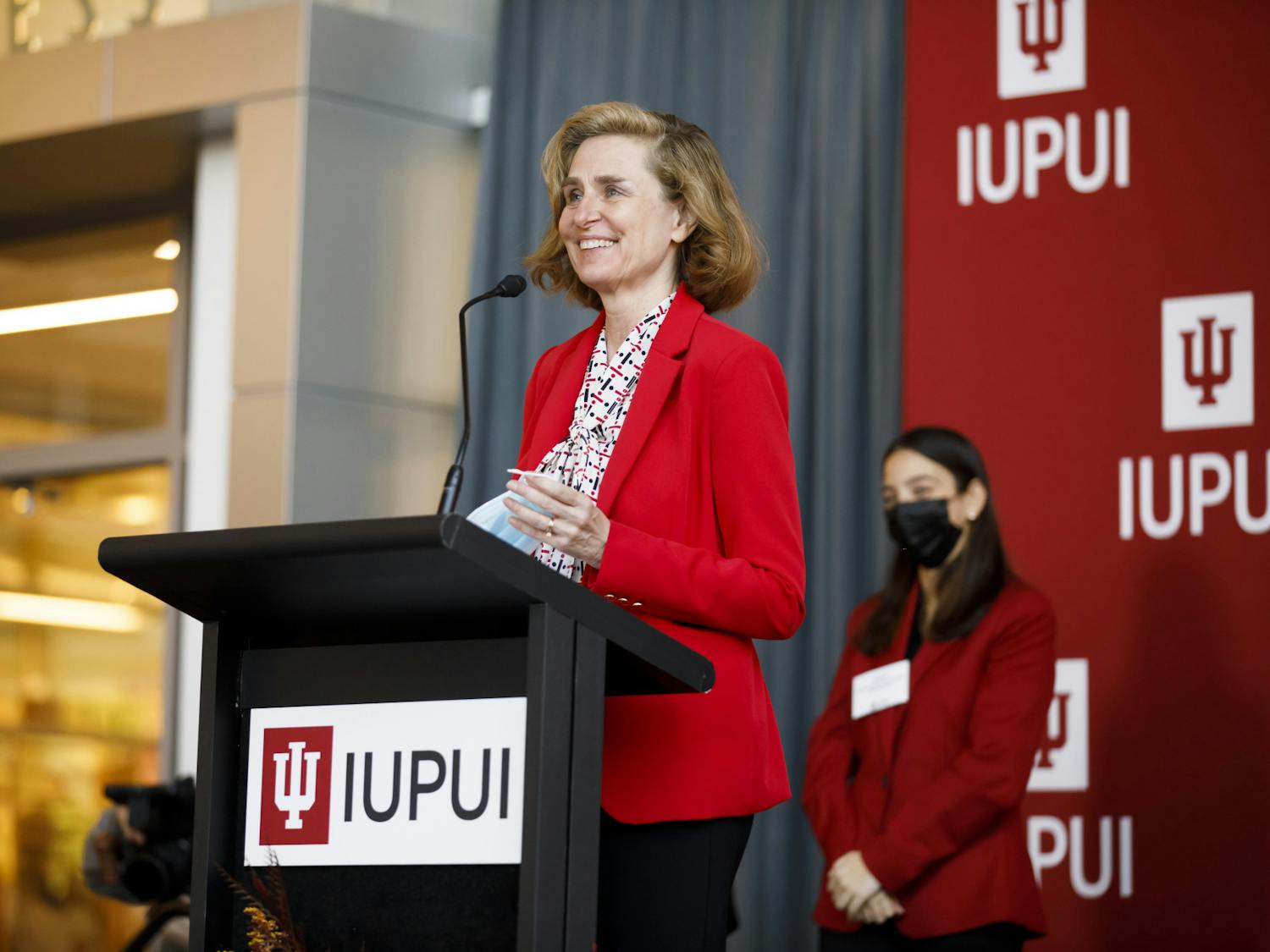The lack of a plan for Indiana University to achieve carbon neutrality prompted scientists to call on University president Pamela Whitten for a commitment to net zero carbon emissions earlier this year.
On Feb. 23, Concerned Scientists at Indiana University (CSIU) submitted a letter to President Whitten and other university leadership, urging them to take the steps necessary to form a university-wide climate action plan.
CSIU’s letter references resolutions passed by IU’s university faculty council, and various other university councils and forms of government, as justification for demanding swift action by the Indiana University administration. The very same administration had allowed the university to fall behind when it comes to carbon neutrality initiatives, the coalition of current and former IU science professors said.
“Of the 14 Big Ten universities, IU is only one of three without a formal plan for climate action,” the letter says, pointing out that IU should join the 1,050 universities from across the globe who have formally committed to net zero carbon emissions by 2050.
While fellow Indiana universities Ball State and Notre Dame have formed ambitious climate plans, IU has yet to do so. The absence of a systematic plan affects all IU campuses, including IUPUI.
Jessica Davis, IUPUI’s sustainability director, believes that if IUPUI is to obtain carbon neutrality – at any point in time – it wouldn’t be able to do so without appropriate funding.
“The type of changes that would need to be made would be a system wide approach. . . system wide changes to supply policies and system wide adjustments to infrastructure and energy procurement,” Davis said, later indicating that financial support would have to be approved by IU’s flagship institution, IU Bloomington.
One encouraging sign for Davis is the number of carbon neutrality resolutions passed by numerous councils on the majority of IU campuses.
The notion IUPUI should have a plan to address carbon neutrality in place by 2025 began with the faculty council at IU East, which shared the resolution with IUPUI’s faculty council. The faculty council then passed their own resolution.
Spurred on by the actions of the faculty council, the IUPUI graduate professional student government and staff council passed resolutions of their own.
The staff council resolution was of particular importance, Davis said.
“If you look at [carbon] emission sources, about 90% of them are under the management staff, not faculty or students. Staff are directly administrating, overseeing or managing programs that are the sources of the majority of these emissions,” Davis said.
IUPUI’s student government passing a resolution in fall 2021 signified every form of government had passed carbon neutrality resolutions. According to Davis, like IUPUI, most IU affiliated campuses have passed similar resolutions throughout their respective governing bodies.
“That doesn't happen very often, that everybody agrees on the same thing,” Davis said, crediting the coordination amongst several campuses, and governing bodies, for putting the onus on IU to strive for carbon neutrality at an enterprise level.
In addition to pressure from student, staff and faculty governments, protests took place in Bloomington on March 4 involving several climate advocacy groups.
In response, IU president Pamela Whitten announced a new climate action planning committee to examine the university’s efforts in reducing carbon emissions. The committee consists of students, professors and staff from various IU campuses, though it is unclear when they will meet or if a commitment to carbon neutrality will be made by the university.
The committee will be responsible for developing recommendations and identifying new strategies beyond facilities to continue long-term carbon emission reduction, according to a press release from the IU administration on April 7.
Whatever type of plan the committee recommends, it will need to be malleable.
“I think one thing that is important to note about any plan is that [it] is going to be a living document,” Davis said. “As there are developments that we could take advantage of, the document should be nimble enough to respond to them, rather than creating a climate action plan in 2025 that we're absolutely locked into.”
Urgency is one issue that will factor into any changes, as evidence of global warming has never been so prominent.
According to The Guardian, temperatures in the arctic and antarctic surged to 30-40 celsius above normal in mid-March, raising concerns from scientists world-wide that catastrophic effects from climate change could be felt sooner than expected.
Both the letter from CSIU and Davis referenced these concerns.
“Climate change has kind of been seen as a far off problem but we're definitely seeing and feeling it here and now,” Davis said. “That's part of the reason why there's been a significant increase in sustainability commitment.”
Davis attended COP-26, a United Nations based climate change conference in Glasgow, Scotland, where her biggest takeaway was the disconnect between government and private sector when it comes to climate initiatives. She said there has been a common trend of governmental commitment to sustainability, but the private sector doesn’t always reciprocate those goals.
“Hearing that frustration voiced was really interesting,” Davis said, noting the absence of open lines of communication between government and private sector have a silver lining, at least for IUPUI.
“Now, we are really diligent about ensuring that for anybody that we work with on campus, we're always on the same page about what we're trying to do and why, [as well as] the benefits to IUPUI and to the community at large,” Davis said.
Advocacy for sustainable practices is now a cornerstone of the IUPUI student government thanks to the Office of Sustainability’s progressive approach to campus infrastructure and education.
USG president Julia Cilleruelo Fernandez del Moral claims IUPUI helped her discover her niche within environmentally friendly practices.
“I had the opportunity to do an internship that was kind of like half-engineering, half -sustainability, and I fell in love with the sustainability aspect,” Cilleruelo said. “That's where I really wanted to focus on as part of student government.”
Cilleruelo Fernandez del Moral, who majors in Energy Engineering, credits the opportunities IUPUI provided within its sustainability education programs and initiatives as bolstering her resume.
“We think sustainability is something that was a strength when I was trying to get a job, and is one of the reasons why I got the job that I have lined up,” Cilleruelo Fernandez del Moral said.
As she approaches her May graduation date, Cilleruelo Fernandez del Moral will do so without one of the most common stressors for new graduates, finding a job. Her experiences working on IUPUI’s sustainability efforts certainly carry their weight.
“We have seen increased enrollment in sustainability degree programs and are one of the few universities in the country that have trained sustainability professionals. The sustainability job market is incredibly robust,” Jessica Davis said.
The 2021 NCAA men’s basketball tournament, hosted exclusively in Indiana, was the first in the history of March Madness to operate completely carbon neutral, in large part due to IUPUI’s efforts.
Additionally, IUPUI was ranked No. 2 in the United States and No. 28 in the world by the Times Higher Education Ranking, an organization that assesses universities against the United Nations sustainability goals. The national acclaim is a point of pride for the university and was featured in Written by Whitten, the official blog of university president Pamela Whitten.
IUPUI has remained on the cutting edge of sustainable infrastructure and practices for almost a decade. From keeping buildings at set temperatures dependent on season, hosting native tree plantings, to implementing carpool incentives, as well as capturing and reusing rainwater for advanced irrigation techniques – the work of the office of sustainability has transformed the campus into an energy efficient example for others to follow.
Jessica Davis does not believe that sustainability is one size fits all for every organization.
“Everything has to be tailored to the institution,” Davis said. “Part of the reason why we are where we are, is because our strategy has been tailored to our strengths, we have mutually beneficial partnerships, and we have a campus that has really embraced [sustainability] values at a very high level.”
Despite an overwhelming sense of dread revolving around climate change, Davis thinks it's helpful to view it from a point of inspiration rather than a point of hopelessness.
When it comes to achieving carbon neutrality, “We march forward together, shoulder to shoulder,” Davis said.
Whether or not IU’s presidential climate action committee convinces the administration to join the fray is yet to be determined.
Jacob Calderon (he/him) is an intern for The Campus Citizen. He is currently a senior majoring in journalism.





